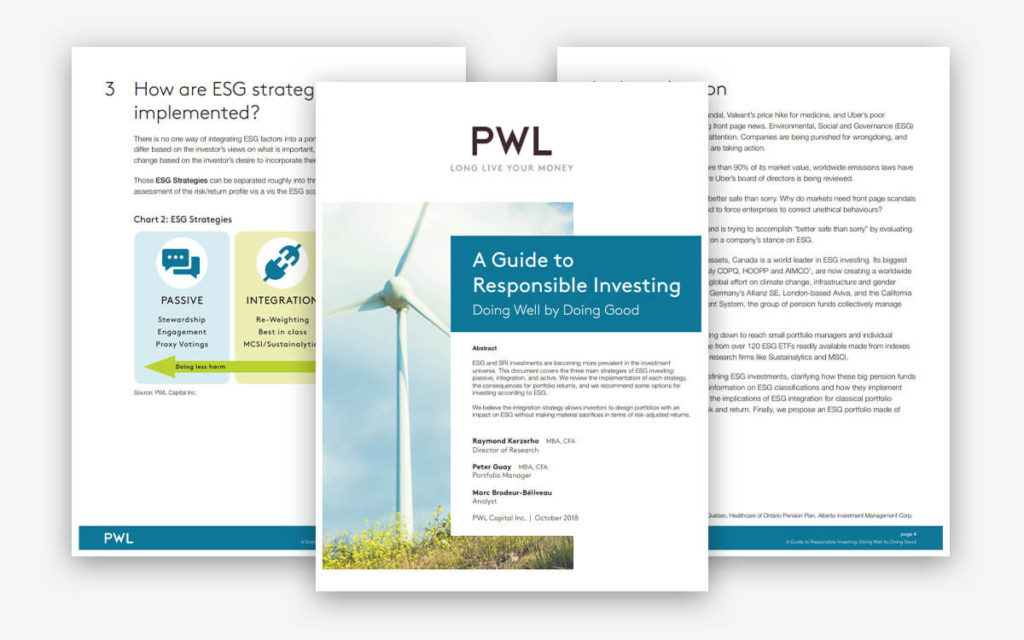Volkswagen’s emissions scandal, Valeant’s price hike for medicine, and Uber’s poor corporate culture are making front page news. Environmental, Social and Governance (ESG) considerations have gained attention. Companies are being punished for wrongdoing, and the public and governments are taking action.
By now, Valeant has lost more than 90% of its market value, worldwide emissions laws have been changed, and the entire Uber’s board of directors is being reviewed.
But as the old saying goes; better safe than sorry. Why do markets need front page scandals and millions of dollars in fraud to force enterprises to correct unethical behaviours?
The new ESG investment trend is trying to accomplish “better safe than sorry” by evaluating investment decisions based on a company’s stance on ESG.
Now at over $1.5T in ESG assets, Canada is a world leader in ESG investing. Its biggest institutional investors, notably CDPQ, HOOPP and AIMCO, are now creating a worldwide initiative that aims to boost global effort on climate change, infrastructure and gender equality. Recently joined by Germany’s Allianz SE, London-based Aviva, and the California Public Employees’ Retirement System, the group of pension funds collectively manage over $6T.
The trend seems to be trickling down to reach small portfolio managers and individual investors. Options now range from over 120 ESG ETFs readily available made from indexes carefully constructed by big research firms like Sustainalytics and MSCI.
This paper aims at better defining ESG investments, clarifying how these big pension funds and index providers gather information on ESG classifications and how they implement them. The paper goes over the implications of ESG integration for classical portfolio performance metrics like risk and return. Finally, we propose an ESG portfolio made of low-cost index ETFs.

This white paper was written by Raymond Kerzérho (Director of Research), Peter Guay (Portfolio Manager), and Marc Brodeur-Béliveau (Analyst), PWL Capital Inc. The ideas, opinions, and recommendations contained in this document are those of the authors and do not necessarily represent the views of PWL Capital Inc.